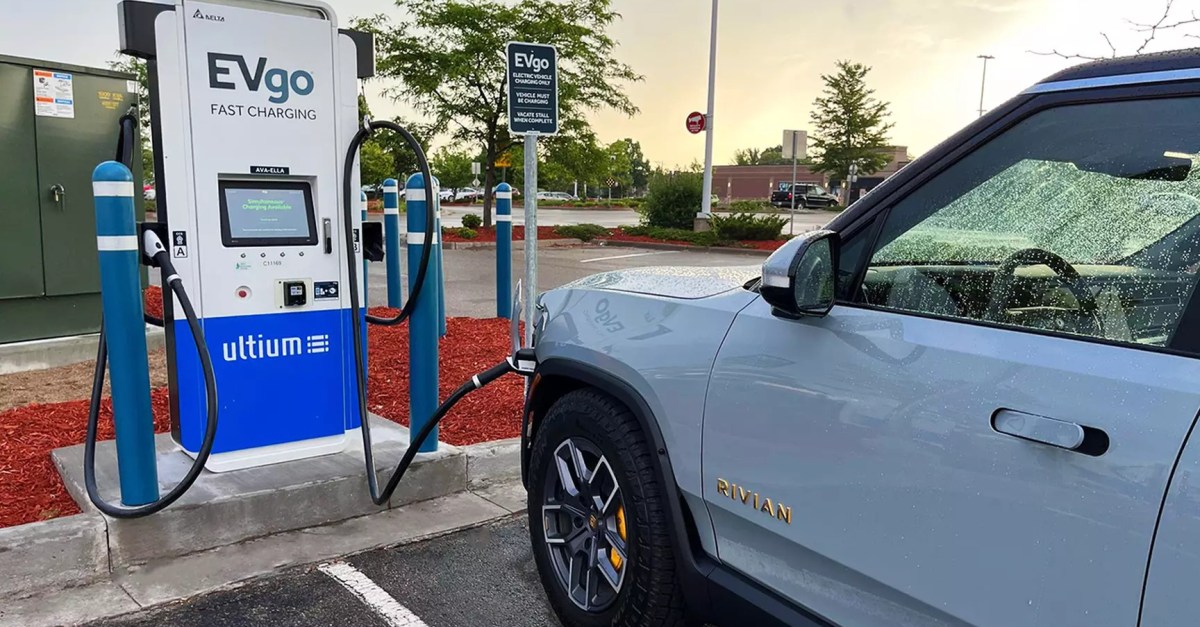EVgo’s Bold Stance: Refusing Fast-Charging Extensions
In a significant announcement that has sent ripples through the electric vehicle (EV) community, EVgo has taken a clear stand against the use of fast-charging extension cables and breakaway adapters. This decision marks a pivotal moment in the evolution of EV infrastructure, raising crucial questions about accessibility, safety, and technological innovation in an industry that is rapidly transforming the transportation landscape.
The Implications of EVgo’s Decision
By refusing to adopt fast-charging extension cables, EVgo is positioning itself as a leader in the drive toward a more standardized and reliable EV charging system. But what does this bold stance mean for the future of fast charging? Let’s break it down.
Accessibility Concerns
One of the primary concerns raised by EVgo’s decision is accessibility. Fast-charging stations are essential for reducing range anxiety among EV users. By not allowing extension cables, EVgo could limit access for users with certain vehicle models that might not fit comfortably into the charging station’s proximity. This raises the following questions:
- Will users with larger vehicles or those parked at awkward angles be left without an adequate charging solution?
- How will this policy affect charging access in urban areas where space is limited?
As the popularity of electric vehicles continues to soar, the need for accessible charging solutions becomes paramount. EVgo’s decision could inadvertently create barriers for some users unless accompanied by innovative solutions that enhance accessibility.
Innovation in EV Charging
While some may view EVgo’s refusal to adopt extension cables as a setback, others see it as an opportunity for innovation. The EV industry is known for its rapid advancements, and this decision could spur the development of alternative technologies that enhance the charging experience.
- Integration of Smart Technology: Future charging stations could incorporate smart technology that automatically adjusts the charging cable’s reach or provides real-time information about the station’s compatibility with various vehicle models.
- Enhanced Station Design: EVgo could push for better-designed charging stations that accommodate a wider range of vehicles, ensuring that all users can charge their EVs without hassle.
By refusing to rely on extension cables, EVgo may encourage manufacturers to rethink their designs and create more versatile charging solutions.
The Safety Perspective
Safety is another critical factor in EVgo’s stance against fast-charging extensions. Extension cables can sometimes lead to safety hazards, including:
- Tripping risks around charging stations.
- Potential electrical hazards if cables are not used correctly.
By standardizing charging infrastructure, EVgo aims to reduce these risks and create a safer environment for EV users. This commitment to safety is essential as the EV market grows and more people begin to rely on electric vehicles.
The Role of Standardization
EVgo’s decision aligns with a broader trend in the automotive and energy sectors toward standardization. As the EV market expands, the need for a unified approach to charging technology becomes critical. Standardization can lead to:
- Improved User Experience: A standardized system ensures that all EV users can access charging stations without confusion or compatibility issues.
- Increased Investment: Investors are more likely to fund projects that have a clear and standardized approach, which can accelerate the rollout of charging infrastructure.
By taking a firm stance on fast-charging extensions, EVgo may be paving the way for a more coordinated and efficient charging network across the nation.
Industry Reactions and Stakeholder Perspectives
As with any bold move, EVgo’s decision has elicited a range of reactions from industry stakeholders. While some applaud the company for prioritizing safety and standardization, others express concerns about accessibility and user experience.
Support from Environmental Advocates
Many environmental advocates support EVgo’s refusal to adopt extension cables, viewing it as a step toward creating a more sustainable and efficient EV ecosystem. They argue that by streamlining the charging process, EVgo can encourage more consumers to switch to electric vehicles, ultimately benefiting the environment.
Criticism from Users
On the flip side, some users and consumer advocacy groups have voiced their concerns. They argue that charging should be as convenient as possible, and extension cables could enhance that convenience, especially in urban settings where space is often at a premium. A common sentiment expressed is:
- “Charging should adapt to the user’s needs, not the other way around.”
This highlights the ongoing debate about how best to balance innovation with user accessibility in the EV charging space.
Looking Forward: The Future of Fast Charging
As the electric vehicle landscape continues to evolve, the implications of EVgo’s decision will likely shape the future of fast charging. The company’s refusal to adopt fast-charging extension cables may serve as a catalyst for change in several important areas:
- Investment in Infrastructure: To maintain its competitive edge, EVgo and similar companies may need to invest in more robust charging infrastructure, ensuring that all vehicles can charge efficiently.
- Collaboration with Automakers: EVgo could foster partnerships with automakers to develop vehicles that are more compatible with existing charging networks, addressing some of the accessibility concerns.
- Policy Advocacy: Engaging in dialogue with policymakers to promote regulations that favor standardized charging systems can help accelerate the transition to a more user-friendly EV charging ecosystem.
In conclusion, EVgo’s bold stance against fast-charging extension cables is a significant moment in the evolution of electric vehicle infrastructure. While there are valid concerns regarding accessibility and user experience, this decision also opens doors to innovation and safety improvements in the rapidly growing EV market. As stakeholders navigate these changes, the ultimate goal remains: to create a seamless, efficient, and accessible charging experience for all electric vehicle users.
With the right balance of innovation, safety, and accessibility, the future of fast charging looks promising.
See more Future Tech Daily

